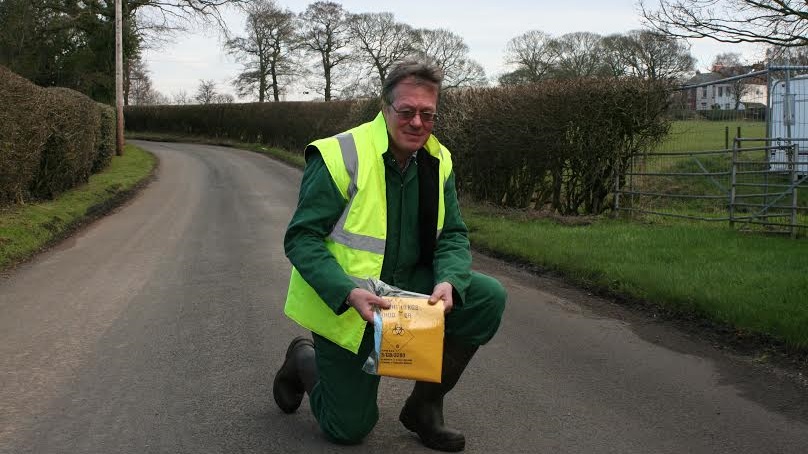
A farmer from the Greater Manchester area is coordinating a survey designed to discover if badgers in the area are infected with bovine TB (bTB).
Bill Mellor, who farms near Stockport, has never had an outbreak of bTB in his cattle herd. But during the last 20 years he has seen the disease get ever closer to his farm. He is now working with the University of Liverpool’s School of Veterinary Science on an NFU-funded survey of road kill badgers in the area aimed at discovering whether or not they are infected with bTB.
Mr Mellor said: “Over the past 20 years bTB has slowly crept north through Cheshire to the point where herds on the border with Greater Manchester are now becoming infected. It is vital that we find out what is causing this slow spread of bTB northwards so we can tackle it in the most effective way and stop it spreading further.
“I’ve never had an outbreak of bTB on my farm and I’m doing everything possible to try and make sure that my herd remains TB free. I believe it is crucial that surveillance of local wildlife is carried out in all areas on the edge of the disease spread like this so we can see exactly how far the disease has spread and what needs to be done to stop it. That’s why I set this project up.
“The area of South East Greater Manchester where I farm is classed by Defra as a bTB low risk area, which means cattle herds are routinely TB tested every four years. Last year the Animal and Plant Health Agency did a check test of every cattle herd in the area and no level of bTB of any significance was found,” he said.
“The area is bordered by Cheshire and Derbyshire where there have been regular bTB outbreaks. A road kill badger survey carried out in Cheshire in 2014/15 found that roughly 20 per cent of the badgers collected tested positive for bTB and the strain of bTB was the same as that found in local cattle.
“To stand a chance of stopping the spread of bTB in this area, and others like it, we need to know how the disease is being spread – is it through cattle movements, and cattle to cattle contact, or through wildlife?”
For the survey, Stockport Metropolitan Borough Council notifies Mr Mellor of any dead road kill badgers. He has been granted a waste carrier licence from the Environment Agency and collects the carcases, triple bags and seals them, and delivers them to the University of Liverpool together with the necessary paperwork.
Since the survey was set up at the end of last September, 18 badgers have been taken to the University so post-mortem examinations and culture studies can be carried out to see if they have bTB. The final results of the testing are still awaited.
“We need more wildlife surveillance in the ‘edge’ area of the disease spread to see if there is a reservoir of disease. We know where the disease is in cattle but we need a clearer understanding of where it is in wildlife” said Mr Mellor.
“By carrying out this kind of surveillance work, as well as fully analysing all the data available about bTB outbreaks in cattle, we will gain a much better understanding of how the disease is spreading and what methods will be most effective at stopping it and eventually eradicating it.”
